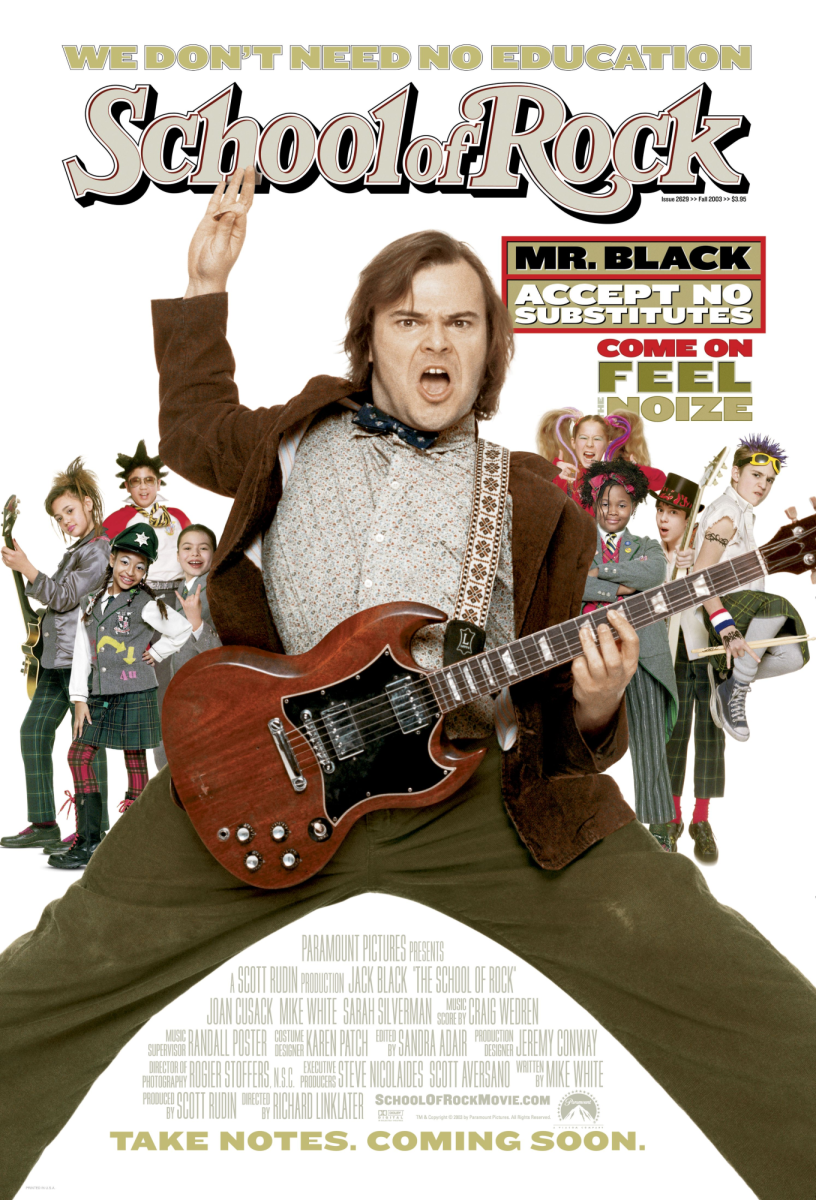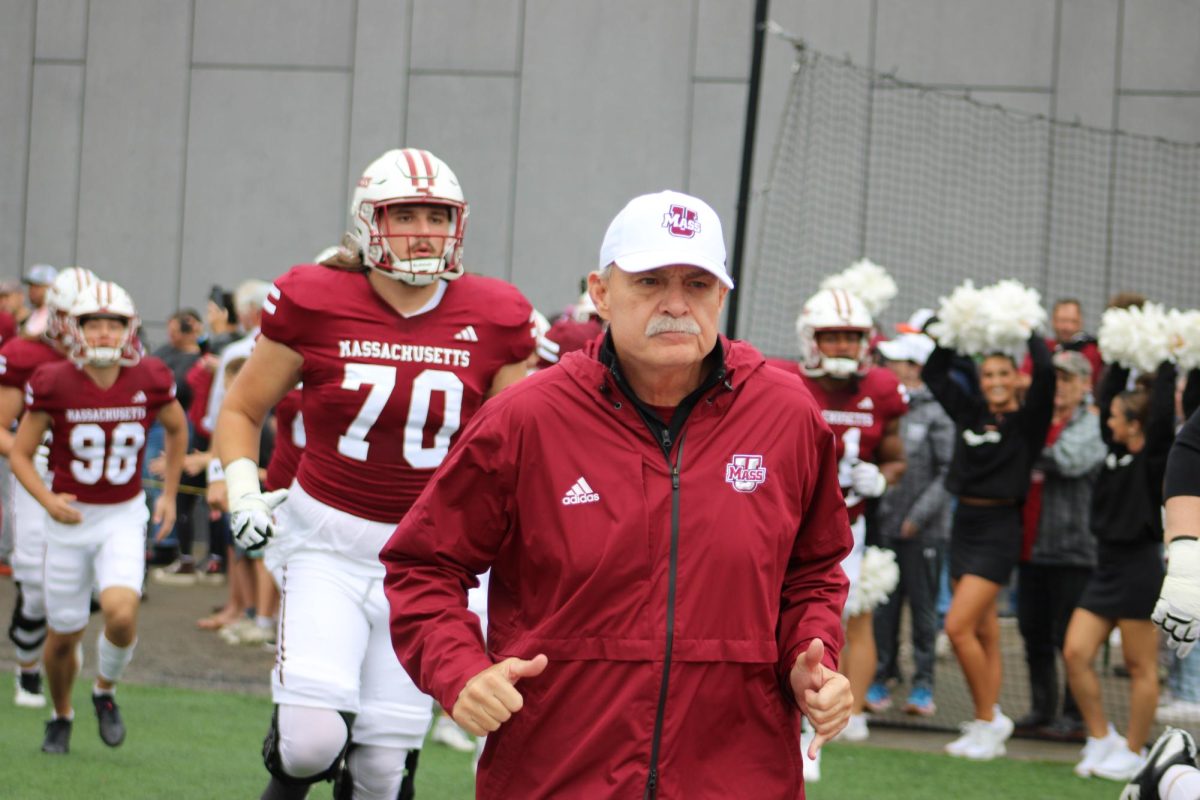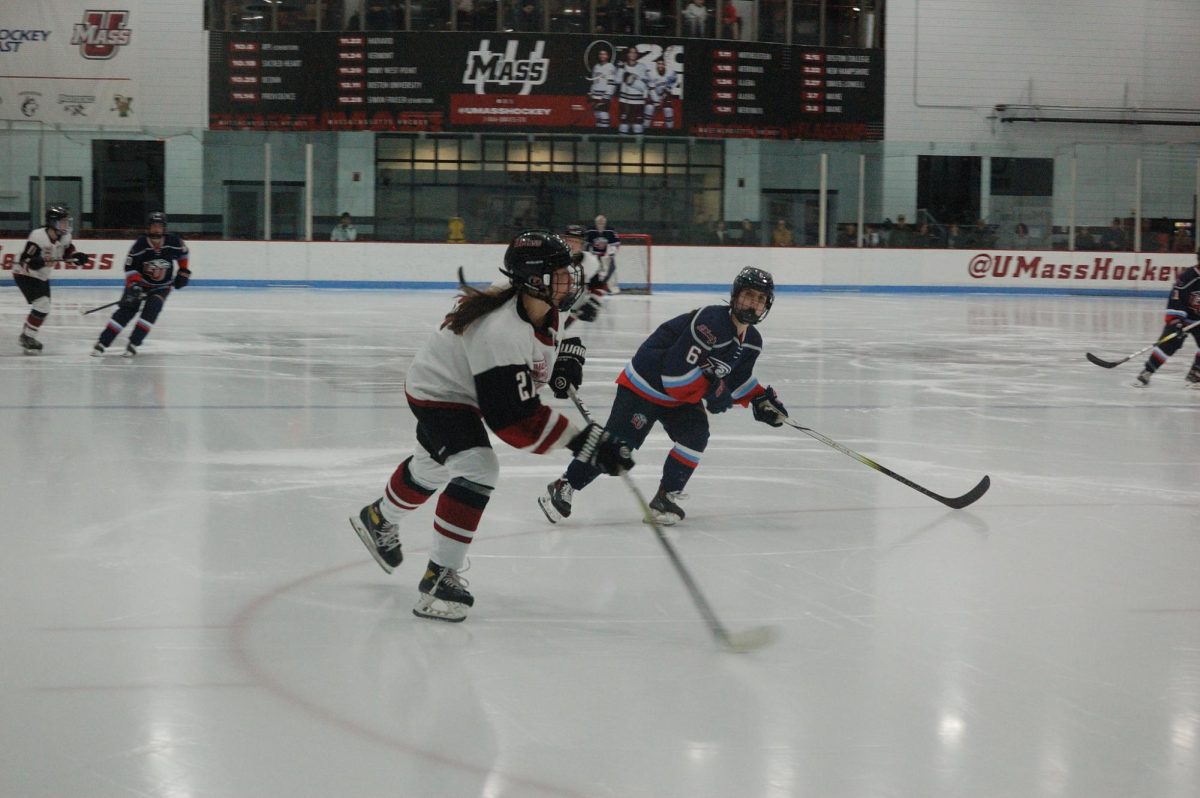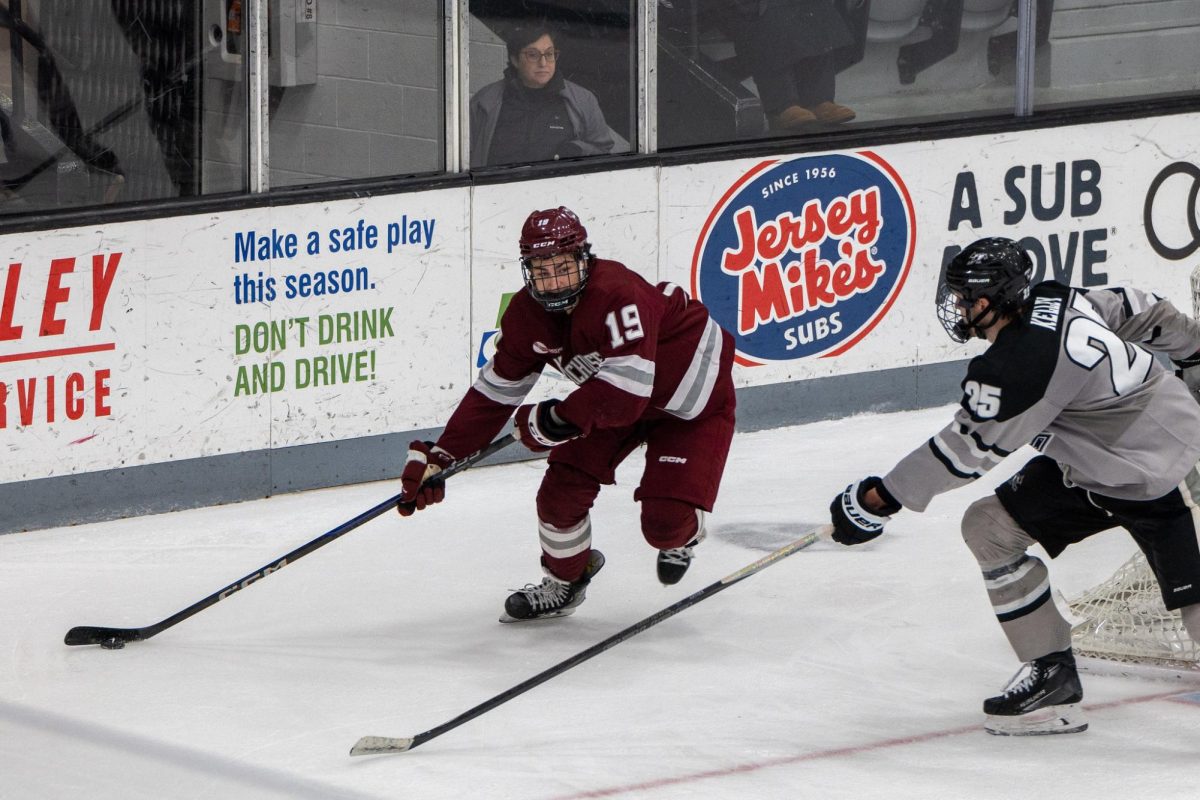This year marks the twentieth anniversary of director Richard Linklater’s comedy film “School of Rock.” The film follows an eclectic, over-the-top guitarist who poses as a substitute teacher whilst having zero experience working with kids, the film demonstrates the power of music and how to effectively “stick it to the man”
The film begins when Dewey Finn (Jack Black) answers a call from a prestigious preparatory school, Horace Green, after getting kicked out of his garage band. He poses as his longtime friend and roommate Ned Schneebly (Mike White) and begins teaching the students of Horace Green prep as “Mr. S”. At first he is disconnected from his students, only interested in the money he is going to earn from the job. That soon changes, however, when he hears the students during music class. This causes Dewey to form a plan to get back into the music scene: create a band with these students and enter the Battle of the Bands contest.
His goal at the start of the film is to get back at his ex-bandmates, but that changes as he starts to learn about and care for his students.
Instead of focusing on the usual school subjects like math or science, Dewey starts teaching his students about Rock and Roll history, using that to attempt to teach his students to stand up for themselves. He calls this “sticking it to the man,” a common motif in classic rock and punk music.
As he teaches these students the basics of Rock and Roll music, Dewey showcases a passion to educate these kids about the rock heroes that he idolizes and imitates. This passion can best be seen during the montage sequence, the heart of the movie. This montage includes footage of a chalkboard scribbled with punk band names, each sectioned off by decade, with the students writing down what they are learning. With the Ramones hit “Bonzo Goes to Bitburg” playing in the background, the audience can tell that these kids are learning real-life lessons through the music they are exposed to.
Through the connections that the students make from the music they listen to, they soon become confident in who they are and what they are capable of. This showcases the power of music as a form of self expression, as they are able to write songs about their feelings and experiences. Not only are the students changed, but Dewey reaches a level of self-actualization: he realizes he can combine his passion for music with teaching, allowing him to reach his full potential by the end of the movie.
The interactions between Dewey and the students, and interactions between the students themselves really show what an important role music plays in making connections. As the students practice more and more, they become comfortable with their abilities and start believing in themselves, which sends the message to the audience that they should do the same.
“School of Rock” was a pivotal film in my younger years, as was most of the music in the film that my parents showed me at a young age. This film taught me to stand up for myself, take those values of “sticking it to the man” to heart, and to fight for what I believe in. Without this movie circulating throughout my household, I wouldn’t have been so interested in music today.
Jack Black confirmed that there will be a twentieth anniversary reunion with almost all of the kids that were in the film.
“All those kids — dig this — they were 10 years old when we made that movie and now they’re all, like, 30,” Black said. “We’re gonna get together and have a 20-year anniversary. We like to jam. I’m looking forward to seeing all of the grownups from ‘School of Rock.’”
“School of Rock” will never fail to make anyone laugh, and at its core the film teaches its viewers to fight for what they believe in and embrace all that music has to offer.
Sydney Warren can be reached [email protected]



















